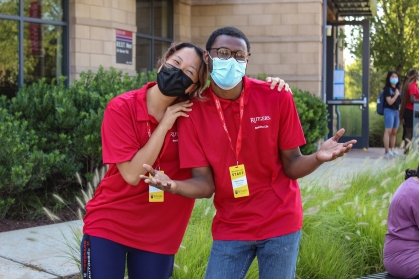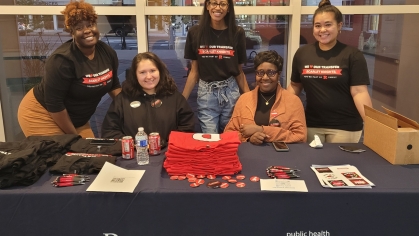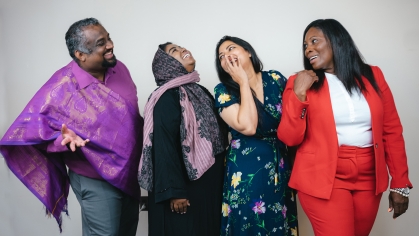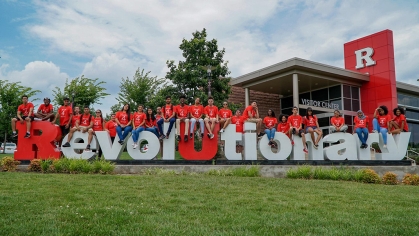Living on Campus with Students During the Pandemic

During Rutgers University’s remote instruction due to the COVID-19 pandemic, Rutgers Residence Life faced the challenge of continuing to engage and support residential communities in a largely virtual world. They confronted this issue with a creative and attentive approach, according to Matt Brown, Residence Life Coordinator for Livingston Apartments.
“First and foremost, our goal in Residence Life is to provide an inclusive, safe, and meaningful community for our on-campus population,” Brown said. “Even though we were navigating the pandemic, our job to serve and support students remained the same. We understood that now, perhaps more than ever, students were looking to residence life for normalcy, support, and care.”
During Fall 2020 and Spring 2021, in response to student needs during the pandemic, Rutgers Residence Life focused on giving students a wide breadth of wellness and academic support. Staff members such as Resident Life Coordinators (RLC) had the responsibility of providing students with a sense of belonging in isolation. Student staff members reached out to fellow student residents in 1-on-1 sessions to check on their academic process. By keeping up with students, Rutgers Resident Life was able to point them towards helpful resources for their financial and mental health.
In a pandemic that disrupted much more than academics, Residence Life also had to address the lack of campus engagement. Students were left out of the usual bustling campus life at Rutgers University, which hampered their social interactions with peers and professors.
We understood that now, perhaps more than ever, students were looking to residence life for normalcy, support, and care.
“As a student affairs professional, I want our students to feel as though they are optimizing and maximizing their collegiate experience. Throughout the pandemic, many students were navigating a feeling of being cheated out of the college experience,” Brown said.
“From students who were looking forward to walking across the graduation stage to new students having a virtual first-year experience, the situation was less than desirable.”
To bring students together, Residence Life offered weekly activities to build feelings of community on campus. Their events included virtual game nights playing Among Us, cooking nights, at-home yoga and fitness classes, and bingo games. These activities allowed students to socialize with the people around them in a safe, engaging way.
On top of these engagement opportunities, Resident Life held virtual Community Family Dinners and Spring Has Sprung Walking initiatives, helping students feel connected with others at their campus residences.
The circumstances throughout 2020 and 2021 drove Resident Life to foster transparent discussions surrounding equity, inclusivity, and wellness in a virtual environment. Brown spoke about the importance of professionals in the residence halls modeling healthy behaviors for their community, including Brown himself.
“Throughout the pandemic, access to wellness fell on a spectrum of dimensions from emotional, physical, mental, social, spiritual, and so on,” Brown said. “From physical to mental wellness, I realized holistic health needed to be a priority, and as we transition to another new normal, I know I will continue to prioritize my wellness in professional and personal spaces.”
Financial support from alumni, parents, and friends helps us create the innovative learning opportunities that challenge students to be their best at Rutgers and beyond.
About the Division of Student Affairs at Rutgers–New Brunswick
The Division of Student Affairs is committed to facilitating interactions that promote students' success and their personal and professional development. Learn more about our mission.



